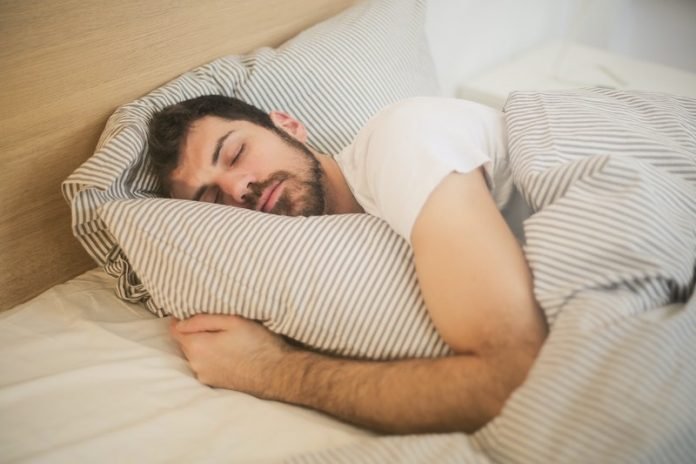
Scientists from Medical College of Georgia found age 40 is when busy Americans get the least sleep.
They found a U-shaped pattern across people’s lives, with age 40 being the low point and hours of sleep starting to creep back up about age 50.
The research is published in Scientific Reports and was conducted by Dr. Xiaoling Wang et al.
In the study, the team used what is considered a representative sample of 200 million Americans: 11,279 participants age 6 and older from the National Health and Nutrition Examination Survey.
This is the first time that 24-hour accelerometer data was available in a nationally representative sample.
The team found sleep efficiency, which basically means how much of the time we devote to sleeping that we actually sleep, tends to decrease across the lifetime.
The increased sleep time later in life may reflect the reality that most Americans still retire in their 60s and simply don’t need to get up as early.
Health problems and not feeling well may be another reason older American sleep longer, the investigators write, and more study is needed to look at those potential associations.
The team also found efficiency stabilized from ages 30 to 60, indicating that adults maintain sleep efficiency for a long period, but may get the least sleep in their busy middle age.
Sleep efficiency—basically the time you actually sleep versus the time you have dedicated to sleep, with 85% considered good—also tends to decrease with age.
The researchers also found females generally sleep longer than males across their lives but tend to go to sleep later, particularly as they get older, and get interrupted more, particularly in taking care of children, but still net about four minutes more sleep than males.
If you care about sleep, please read studies about exercise that can help you sleep better, and this new drug could reduce symptoms of sleep apnea.
For more information about sleep, please see recent studies about how to sleep to prevent Alzheimer’s disease, and results showing 7 hours of sleep is best for people in middle and old age.
Copyright © 2022 Knowridge Science Report. All rights reserved.



